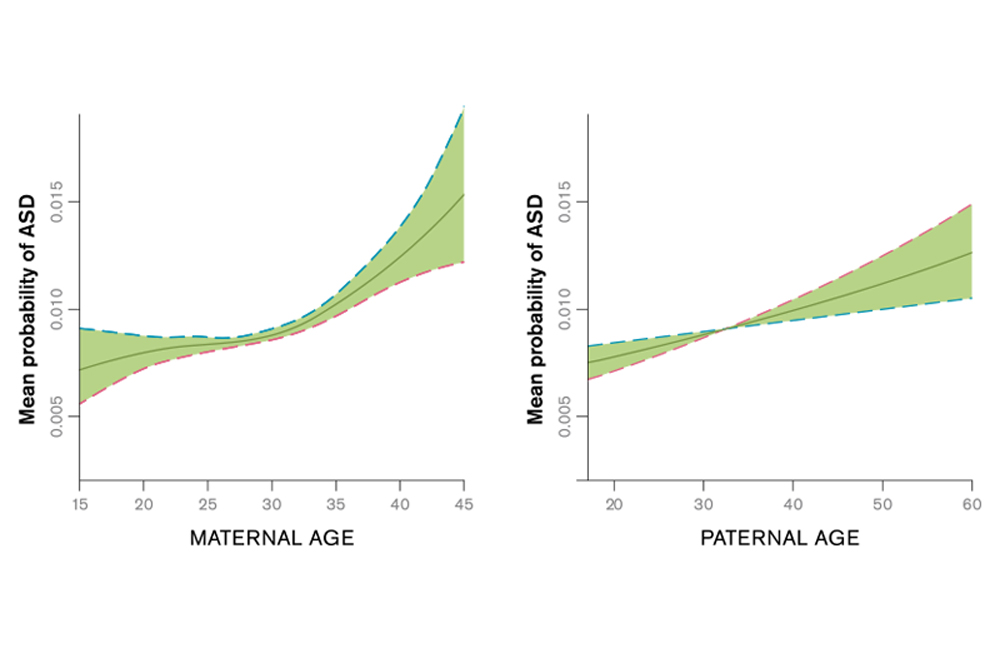In a recent study published in the International Journal of Epidemiology, Drexel professor and A.J. Drexel Autism Institute Fellow Brian Lee revealed the results of his research, which identifies increased parental age as a risk factor for autism spectrum disorders in children.
The study, which examined over 400,000 Swedish birth records from 1984 through 2003, confirmed previous research findings that older parents carry a higher risk of bearing a child with ASD. It also uncovered new relationships between age and autism risk, opening up new research possibilities in the future.
While other studies have determined the basic relationship between parental age and autism risk, many of them had limitations, which Lee was able to avoid with how he conducted his research.

“What a lot of people have done in the past was just chunk ages into, say, five to 10-year age categories and when you do that, you lose a lot of precision,” Lee said.
Lee took the data and presented autism risk as a function of parental age in graphical form so as to not isolate certain age groups. By doing so, he was able to create a clearer picture of how ASD risk is impacted by age.
For fathers, the relationship is linear; the increase in risk is consistent among all ages. However for mothers, age is much more influential as a risk factor if the mother is above the age of 35.
“What we were also able to look at was whether or not the effect of one parent’s age modifies the effect of the other parent’s age,” Lee said.
Through such co-parental analysis, it was determined that maternal age has a stronger effect on autism risk than does paternal; if the mother is old enough, the father’s age becomes nearly irrelevant in the determination of ASD risk.
Lee warns women and expectant mothers not to misinterpret this information.
“We don’t want to cause any undue stress. In our sample, the prevalence of autism is about one in 100, and really even having a child at, say, age 45, would only increase the risk slightly, so that the risk becomes less than two in 100,” Lee said.
This information will hopefully be used to more specifically pinpoint currently unknown autism risk factors.
“We don’t necessarily care about age as a risk factor, because age is one of those things that it’s very difficult to intervene on,” Lee said. He would like to use this information to help identify more specific factors that may cause ASD. “With autism, we still really have no clue [about risk factors], and I think there’s such a great need for research,” he continued.
Lee studied biological anthropology at Harvard University, and went on to earn a doctorate in epidemiology from Johns Hopkins University. He has taken an interest in studying autism from an epidemiological perspective because of how little is known about it.
“For a lot of conditions like cardiovascular disease and cancers, we already sort of know the home-run risk factors,” Lee said. “We really don’t know yet the correct way to analyze or how to research autism spectrum disorders; we don’t know if it’s one condition or if it’s multiple conditions with multiple etiologies. I think this is one of those important research directions that we need to carry out going forward.”
The new findings coincided with Autism Awareness Month, which took place during April.


